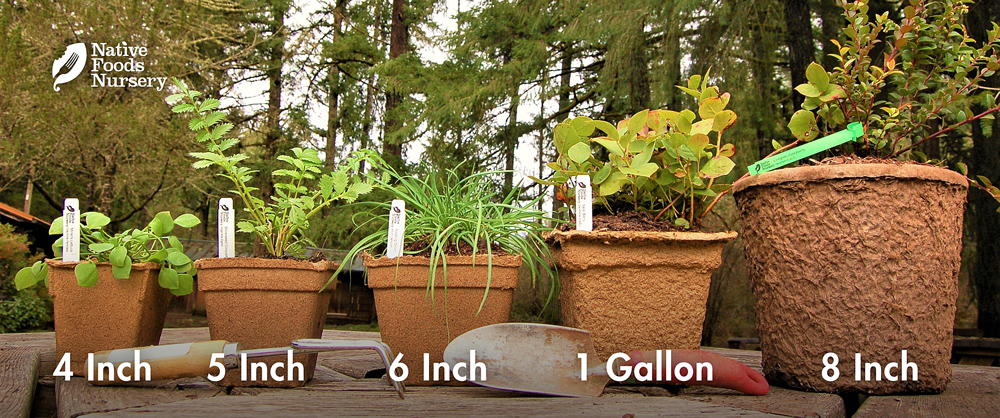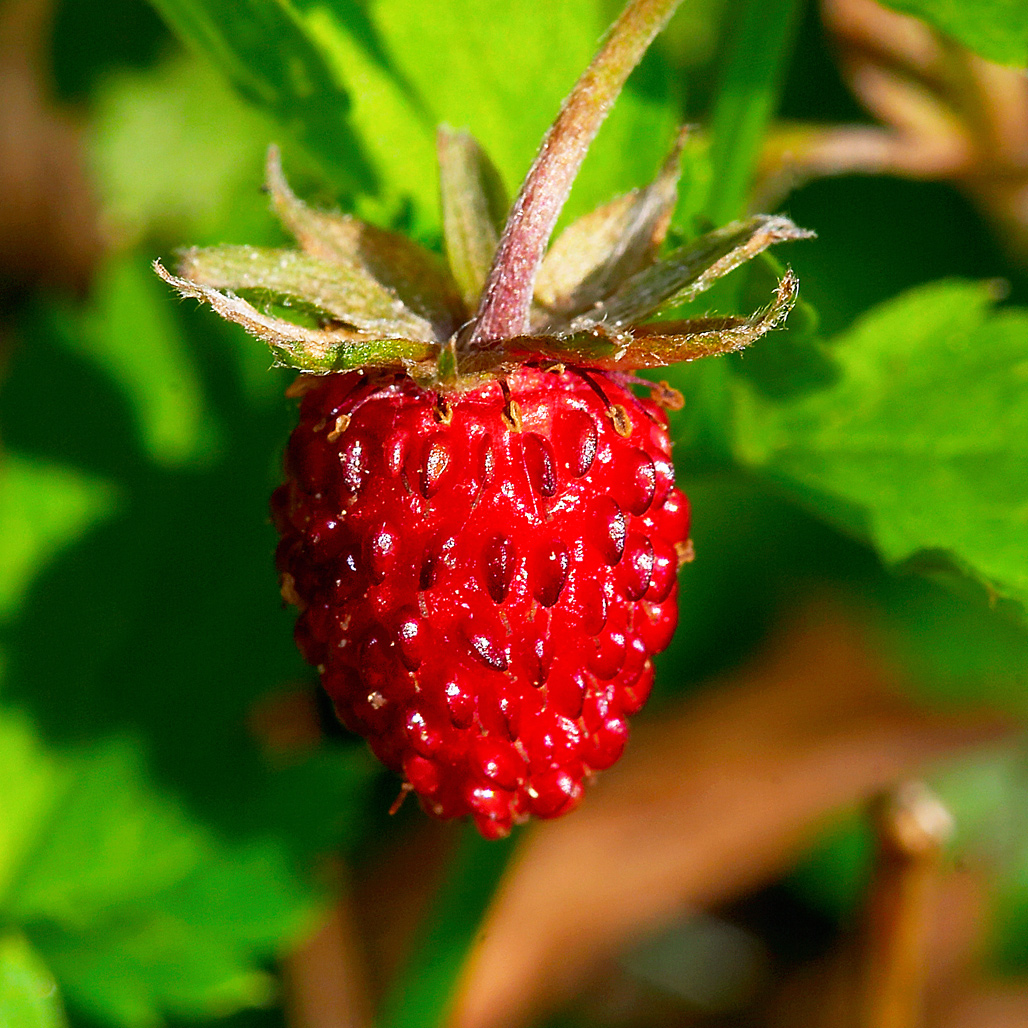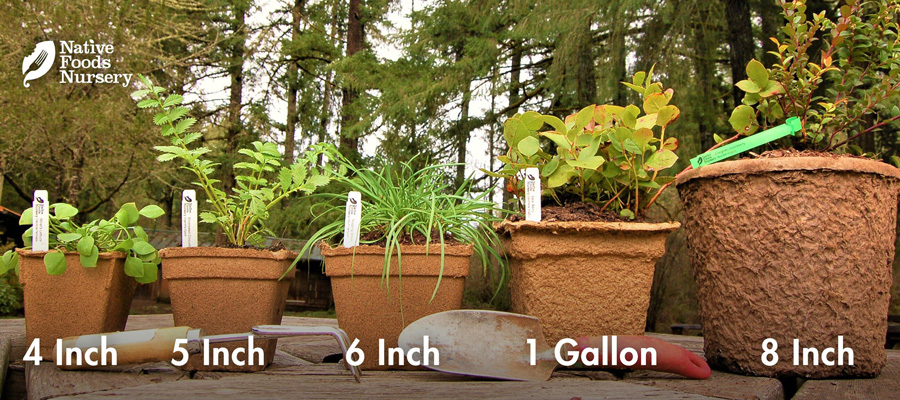Mountain Strawberry
- Current Stock:
- 0
- Other Names:
- Common Strawberry, Virginia Strawberry, Wild Strawberry
- Latin Name:
- Fragaria virginiana
Mountain or Wild Strawberry is a fruiting, evergreen groundcover native to North America, growing across much of the United States and Southern Canada.
Edible Uses
The Mountain Strawberry has been used by humans for millennia as a native food. It is one of the two strawberries hybridized to create the modern garden strawberry. Its bright red strawberries are smaller than store-bought varieties, but are appreciated for their unique and superior flavor. They can be eaten fresh, or made into preserves and confections. Additionally, its tri-fold leaves can be eaten raw in salads, cooked, or even steeped into a medicinal tea. High in antioxidants, Vitamin C, and minerals - strawberries are certainly a superfood!
Ornamental Qualities
Mountain Strawberry is a beautiful evergreen groundcover with small white flowers, striking red stems, lightly toothed tri-fold leaves and delicious red fruit. Extending out from long runners, the low-growing berry can fill empty landscapes spaces with color and interest all year long.
Environment and Culture
Due to its adaptability and attractiveness, Mountain Strawberry provides food and medicine for humans and animals across a wide variety of North American habitats and ecologies. Often creating a solid shield of green in the undergrowth, this hardy plant keeps nutrients in place while offering cover and habitat for small forest creatures. Once established, Mountain Strawberry is very deer resistant and easy to maintain.
Northwest Native American tribes today still value this special plant as food, medicine, and family. Despite great cultural losses, they continue to work towards stewarding and restoring wild populations, both strengthening the integrity of the ecology and sustaining their cultural heritage and wisdom. These strong and recovering peoples and plants deserve our respect, gratitude, and reparations. (Learn more & how to help on our Charitable Giving page.)
Harvest, Care, and Preparation
Mountain Strawberry spreads easily and quickly in loose, well-drained soils. Younger plants are more vigorous and produce more berries, so it's recommended to divide the patch every 3 to 4 years and start a new patch for increased vigor. While it can handle shade, it needs sun to set and ripen fruit.
Strawberries are best picked by hand and eaten fresh from the plant, when soft and red. However, they can also be prepared into jams, jellies, and other delicious preserves. Leaves can be eaten raw or cooked in salads or stirfries, or steeped to create delicious light strawberry tea high in Vitamin C. Stay tuned for more recipes from our Blog.
Native Range: United States & Southern Canada
USDA zones: 3-9
Ease of Care: Very Easy
Deer Resistance: High
Light Requirements: Light Requirements Shade - Full Sun
Soil Type: Any, prefers well-drained
Water Requirements: Any, prefers moist
Pollination: Self-pollinating
Bearing Age: 1st year
Size at Maturity: 4"
Bloom Time: Spring
Harvest Time: Spring/Summer
Pot Sizing Guide





